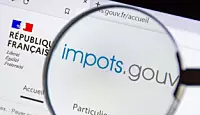-
Millions to get email from French tax officials: be sure to read it
If the information contained is wrong and you do not take action you could be fined
-
Eight reasons to be cheerful about French income tax in 2024
New tax credits and a ‘super’ allowance for some furnished rentals are among the plus points
-
Visas, French residency cards and other admin updates for April 2024
Plus, a standardised long-term residency status across all EU states stalls under Belgian presidency
Own up over foreign income before October, says HMRC
The UK’s HMRC tax authority has issued a warning that ‘substantially higher’ penalties will be in place from October 1, 2018, for anyone who has failed to pay all tax due on ‘foreign income and assets’ in recent years.
It advises making a disclosure to HMRC before the cut-off date.
HMRC says most people do declare correctly and pay the tax they owe, but in some cases people may have not been aware of their responsibilities.
If in doubt, it says you should check you have paid appropriate tax, perhaps by taking professional advice.
See also gov.uk/guidance/worldwide-disclosure-facility-make-a-disclosure
This does not relate to self-assessment declarations for the UK tax year 2017-18 (for which the deadline has not yet passed) but to those who have not properly declared in earlier years.
The increased penalties will apply where extra tax becomes payable due to an undeclared ‘offshore matter’, an HMRC spokesman said.
The spokesman said this may include, for example, UK property incomes of a French resident that were transferred to them in France, or French incomes of a UK resident
He said that relevant income for the latter may include money from renting property, gains made on sales of assets (houses, jewellery, art…) as well as income from investments.
For more information see gov.uk/guidance/requirement-to-correct-tax-due-on-offshore-assets
Reader's query answered by Hugh MacDonald
The Connexion welcomes queries and regularly publishes a selection with answers. However, please note that we cannot enter into individual correspondence on money topics. Queries may be edited for length and style. Due to the sensitive nature of topics we do not publish full names or addresses on these pages.
Send your financial query to news@connexionfrance.com
The information here is of a general nature. You should not act or refrain from acting on it without taking professional advice on the specific facts of your case. No liability is accepted in respect of these articles. These articles are intended only as a general guide. Nothing herein constitutes actual financial advice























